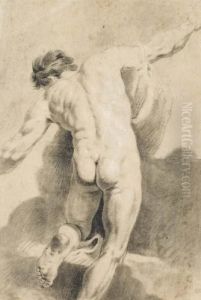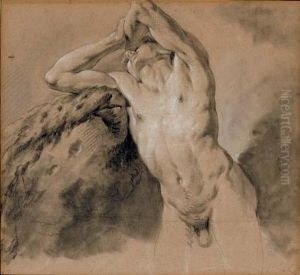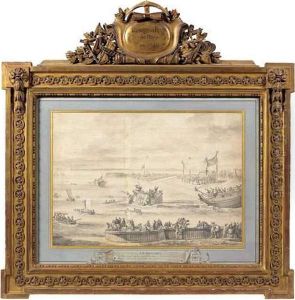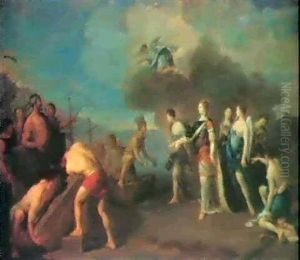Jean-Baptiste Descamps Paintings
Jean-Baptiste Descamps was a French painter, writer, art historian, and teacher born in Dunkirk, France, in 1714. He was primarily known for his involvement in the French art world of the 18th century and for his significant contributions to the academic and theoretical aspects of art.
Descamps showed an early interest in painting and was initially a pupil of the painter Guillaume Taraval before moving to Paris to further his education in the arts. In Paris, he studied under the renowned French painter Nicolas Vleughels, director of the French Academy in Rome, and also worked under the tutelage of the history painter Charles-Joseph Natoire.
Despite his training as a painter, Descamps did not achieve great fame for his own artworks. Instead, he became more influential through his writings and teachings. He is best known for his four-volume work 'La Vie des Peintres Flamands, Allemands et Hollandois,' published between 1753 and 1764. This series of books was a compilation of biographies of Flemish, German, and Dutch painters and was a significant contribution to the field of art history, offering valuable insights into the lives and works of Northern European artists.
Descamps also founded an art school in Rouen, the École Gratuite de Dessin, which became an important institution for the training of French artists outside of Paris. His efforts in education were recognized by King Louis XV, who appointed him as the director of the school, a position he held until his death.
Jean-Baptiste Descamps' career also included being elected as a member of the Académie Royale de Peinture et de Sculpture in 1760. His legacy as an art historian and educator has been noted for providing a broader understanding of Northern European painting during his time. He passed away in 1791 in Rouen, leaving behind a wealth of knowledge through his writings and the generations of artists he had trained.



